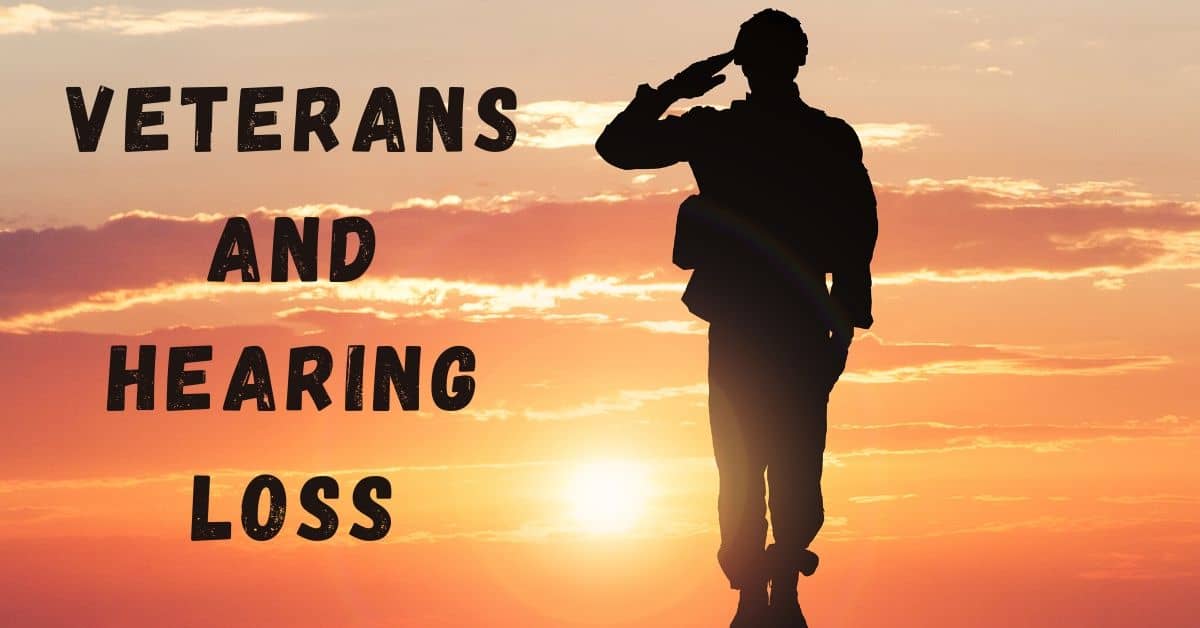When veterans come home with bodily injuries or traumatic mental illnesses like PTSD, it’s easy to overlook hearing loss. But the US Department of Veterans Affairs reports hearing loss and tinnitus as being consistently number one and number two service members’ most common injuries.
The dangers of noise on the battlefield.
Military personnel often work in noisy conditions such as ships, tanks, and haulage carriers. They work with heavy equipment, weapons, and explosives, all creating deafening, hearing-damaging sounds.
Hearing loss from exposure to noise is often gradual, caused by prolonged exposure to loud noise. But in conflict scenarios, it can also be instantaneous, for example, when standing near an explosion or some other intense sound burst. Although explosions and firearm noise are common occupational hazards for military personnel, there is no inevitability in their hearing loss – it is entirely preventable.
The two most common injuries
Let’s look separately at both hearing loss and tinnitus conditions and how they affect our veterans.
Noise-induced hearing loss (NIHL) refers to a loss of hearing over a long time due to prolonged exposure to high noise levels, but it can also be caused by a brief blast of loud noise, as soldiers often experience on the battlefield.
If you experience NIHL, then the noise has adversely affected your inner ear hair cells. The ability of these cells to collect and transmit sound to the brain is subsequently diminished. Unfortunately, NIHL is irreversible. Once the exposure to noise has destroyed the inner ear’s hair cells, they can not be replaced.
Tinnitus is the term for the sense of hearing a sound when there is no actual sound. Symptoms of tinnitus include ringing, whooshing, moaning, or ear shaking. Veterans with tinnitus may find it impedes them to focus or sleep properly.
Why military personnel need ear protection.
Conscious of the risk of hearing loss, the army spends millions on hearing protection devices for its employees.
However, there is a common misconception among those on active duty that ear protection will compromise communications during combat missions and hamper their performance during missions.
This may have been true in the past, but technical developments have allowed hearing safety and clear communication to exist side by side. These earplugs use a filter that will enable soft noise but prevent high-frequency or impulse noise from entering the ear, such as noise from a flash-bang or an explosion.
Watch out for inadequate hearing protection
There have been a few recent controversies involving hearing protection suppliers. For example, a case came to court in 2016, claiming that the manufacturer 3M sold earplugs that didn’t provide adequate hearing protection to troops using earplugs.
The biggest issue with these earplugs is that they were too short to be correctly inserted into the ear, but military personnel still used the earplugs as usual. It affected their hearing health and caused many to suffer massive damage in their inner ears to the fragile cells.
As more and more veterans discover that their hearing aid does not cover their ears, they have filed lawsuits against the company, seeking redress for their hearing damage.
Army Sgt. Scott Rowe from Texas, one soldier who has come forward, is seeking damages and restitution for hearing loss he suffered on Iraq’s front lines. After depending on government-issued hearing aids, he lives with hearing loss and tinnitus, and he still suffers from vertigo and balance issues. This is a familiar story among millions of veterans with hearing loss.
Hearing loss treatment and tinnitus
Solutions exist to support those who have recovered with hearing loss and tinnitus.
A lot of people find hearing aids useful to help them hear better. Hearing aids provide several clinically proven advantages for wearers of hearing aids, including improved communication and reduced listening effort. Best of all, improved hearing will help you stay connected to the essential people in your life, something particularly important when you have spent a long period in active duty apart from them.
Unfortunately, tinnitus cannot be cured, but it can be treated. There are many ways to mitigate the ringing or buzzing, from sound therapy to cognitive behavioral therapy.
Treating Hearing Loss
If you are a veteran and find it hard to hear, please visit us for a hearing assessment. We will determine your hearing loss level and help you find the perfect device to treat your tinnitus and fit your lifestyle seamlessly, enabling you to communicate with those you love, and enjoy all the sounds you’ve missed.

